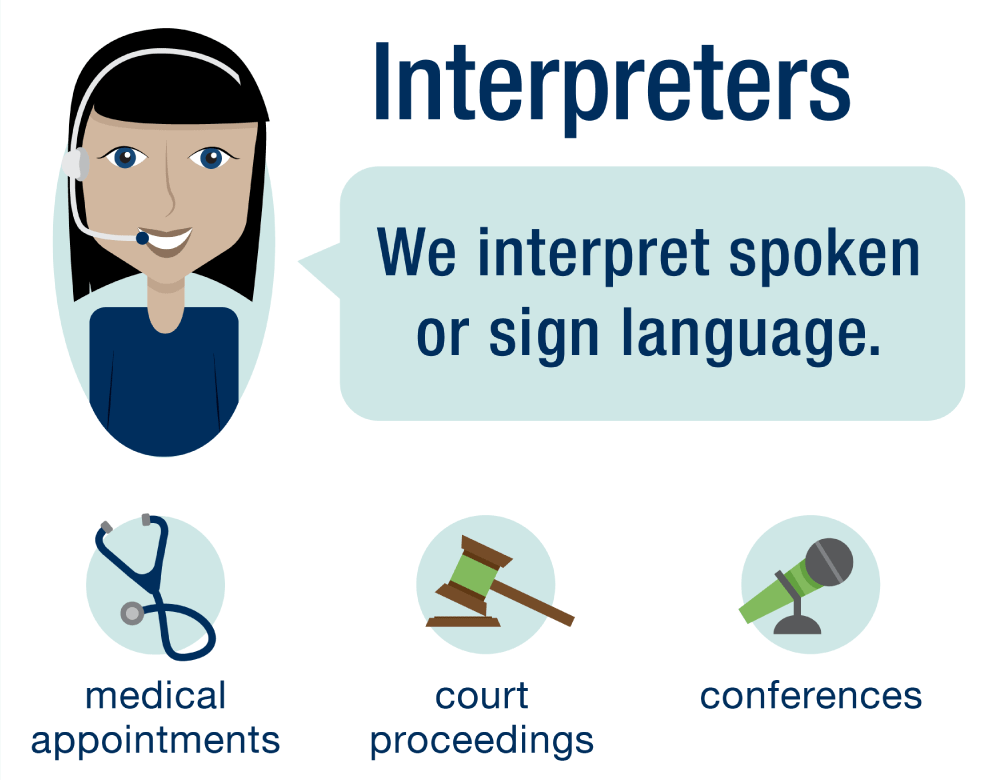- Home
- Round Table
- 2023
- Translators vs. Interpreters
Translators vs. Interpreters
May 14, 2023

Translators do the writing
Translators work with the written word, converting text from a source language into a target language. This is far more than replacing one word with another. The translator must also convey the style, tone, and intent of the text, while taking into account differences of culture and dialect.
Often, the finished document should read as if it had originally been written in the target language for the target audience. But this is not always the case. Highly specialized content may require the translator to retain elements of the source language culture in the target language translation. A professional translator will have the expertise to know the best approach for the translation.
Translators usually work in one direction
Some translators may be able to understand several different source languages, but in general they have just one target language—typically their native language.
Good writers in their native languages
Translators not only understand the source language, but also write extremely well in the target language.
Often specialise by subject areas
Like many professional writers, translators specialise in certain subject areas, such as law, medicine, business, banking, technology, and science. Specialization requires an in-depth knowledge of the subject and its terminology in both the source and target languages

Interpreters do the talking
Interpreters work with the spoken word, converting speech from a source language into a target language. This is far more than speaking two languages fluently. The interpreter must also communicate the style and tone of the speaker, while taking into account differences of culture, dialect, and setting. The listeners should hear the interpreted message as if it had been originally spoken in their own language.
Interpreters usually work in two directions
Most interpreters work bi-directionally, meaning that an interpreter often works both to and from the target and source languages.
Good speakers in their native languages
Interpreters not only understand the source language, but also communicate extremely well in the target language.
The setting determines the method of interpreting.
Simultaneous interpreting
Simultaneous interpreting requires the interpreter to listen and comprehend in one language (source) while "simultaneously" providing an interpretation in a second language (target).
Settings for simultaneous interpreting include court proceedings, international meetings, television news broadcasts, and press conferences. The sessions at the United Nations are the most commonly recognized use of simultaneous interpreting.
Consecutive interpreting
Consecutive interpreting requires the interpreter to hear several complete sentences in one language (source) before the speaker stops to allow the interpreter to provide an interpretation in a second language (target).
Settings for consecutive interpreting include small meetings, person-to-person communication, and question-and-answer sessions, such as attorney-client interviews and physician-patient encounters.
Often specialise by subject areas
Interpreters often specialise in certain subject areas, such as law, medicine, business, banking, technology, science, and literature. Specialisation requires an in-depth knowledge of the subject and its terminology in both the source and target languages.
One common requirement
To perform effectively and accurately, interpreters must be able to hear the speaker clearly. It is also helpful—and preferable—if the interpreter can see the speaker.
Usually paid by the job
Interpreters set their rates by the length of the job—hourly, half day, or full day. If you need an interpreter for an entire day, be sure to specify whether the day is 7, 8, or more hours.
Archive
2025
- In Case You Missed It;
- Exciting Advancement in Deafblind Interpreting
- Understanding the AUSIT Code of Ethics
September
July
May
April
March
February
January
2024
December
August
July
June
March
January
2023
- Protocols for the Translation of Community Communications
- How much does a translation cost?
- Translators vs. Interpreters